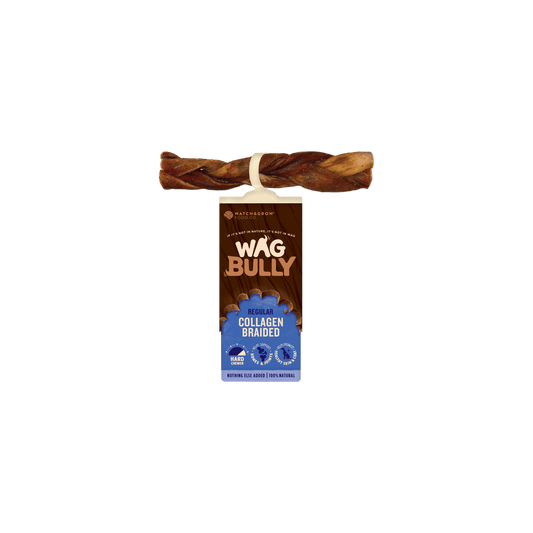Why Do Dogs Lick You? The Reasons Behind the Slurp
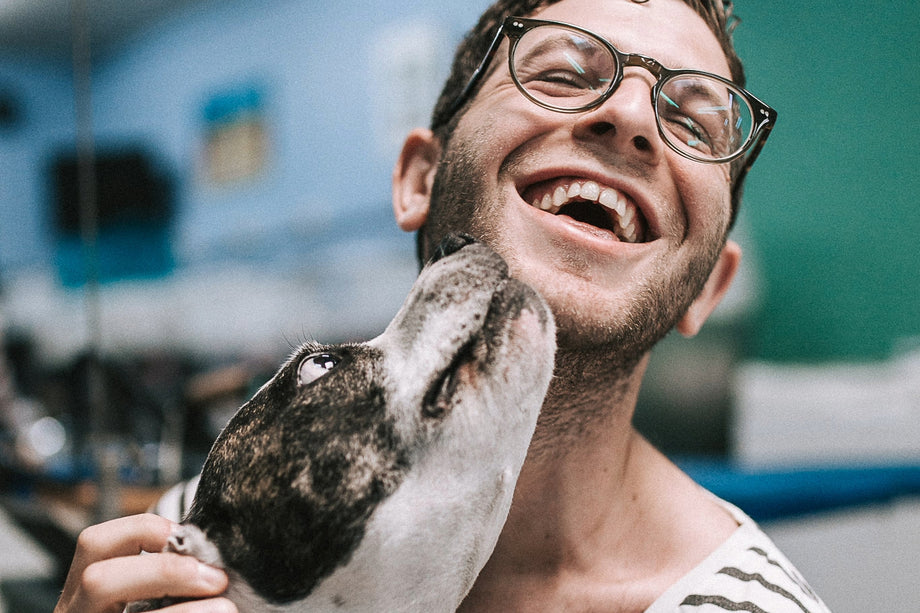
Ever wondered why your furry bestie just can't resist giving you a good ol' lick? It's a question we get asked quite a bit here at WAG, and today we're diving deep into the science and psychology behind this fascinating canine behaviour. So, next time your canine companion showers you with slobbery kisses, you'll know exactly why they're doing it. Plus, we'll share some of our natural treat options that are the perfect way to reciprocate their affections.
The biological reasons for licking
Licking is an instinctual behaviour that traces back to the early stages of a dog's life. A mother licks her pups as soon as they're born, both to stimulate breathing and to clean them. This nurturing action helps create a strong pack bond. As they grow older, pups lick their mother's face and mouth as a request for regurgitated food — a behaviour which solidifies their role in the pack's social structure. So, in many ways, licking is deeply rooted in a dog's developmental and social life.
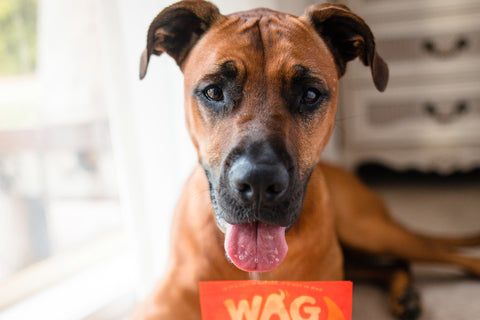
Signs of affection
Don't worry, your dog doesn't lick you to get a tasty meal. More often than not, this gesture signifies love, trust, and connection. Dogs use their body language to communicate, and licking is a powerful tool for that. When your dog licks you, they're often saying, 'I trust you, and I want to be close to you'.
This form of communication can be as meaningful to dogs as a heartfelt chat is to humans. In their own way, your dog is reinforcing the social bond that exists between you two, making it a special, shared moment of intimacy and mutual understanding.
Stress and anxiety release
Sometimes, licking is a self-soothing mechanism for dogs. It releases endorphins, which are the 'feel-good' chemicals that help to relieve stress and anxiety. Just like how humans might tap their foot or fiddle with a pen when they're nervous, some dogs will lick their owners — or even themselves — to help cope with their emotions.
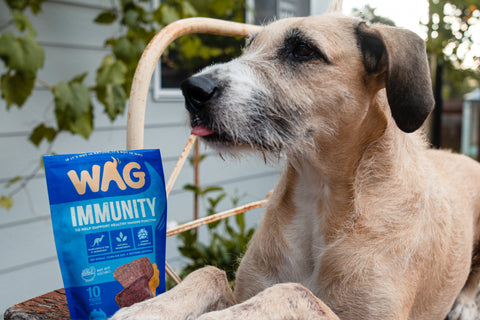
Tasting and sensory exploration
Our four-legged mates are naturally curious creatures. With a sense of taste far different from humans, dogs use their tongues to explore their surroundings.
Unlike humans, who have around 9,000 taste buds, dogs have only about 1,700. Yet, their sense of taste is still highly developed and goes hand-in-hand with their extraordinary sense of smell. These senses help them interact with and make sense of their environment — a big playground full of intriguing odours, textures, and flavours.
If your dog is licking you, they might also be intrigued by the saltiness of your skin or any lingering scents. Dogs are naturally inclined towards salty tastes; in the wild, they would get essential minerals from their prey. Your skin's natural saltiness can be quite appealing to them, similar to how many of us can't resist a packet of salted chips!
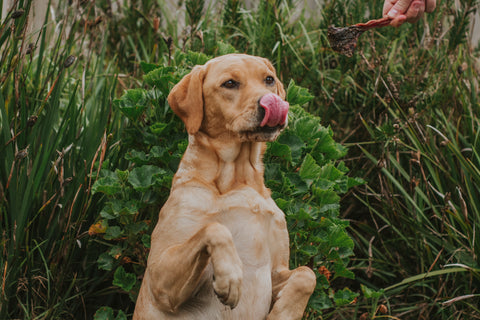
Grooming
Self-licking is also a method through which dogs keep themselves clean. Dogs use their tongues to clean their fur, remove dirt, debris and odours, and to distribute natural oils produced by their skin. This self-grooming behaviour is a way for dogs to keep themselves clean and comfortable. However, excessive licking in certain areas could also indicate skin issues or allergies, so it's important for dog owners to monitor their furry pal if the targeted excessive licking is getting a bit much.
Addressing excessive licking
While licking is mostly a positive gesture, excessive licking can be a cause for concern. It can also be particularly annoying for dog owners who find that the excessive licking is preventing them from getting a good night's sleep (ever been lying there with your peace being interrupted by your dog’s constant slurping? Yep, us too!).
Excessive licking might signify underlying health issues such as allergies or more severe behavioural issues like obsessive-compulsive disorder, known in the canine world as Canine Compulsive Disorder (CCD) which is a form of anxiety. If your dog is excessively licking themselves or you, it's advisable to consult with a vet to identify the underlying cause.
Respectful boundaries
While it's heartening to know that your dog's licking is a form of affection, you may not always appreciate a wet smooch. It's crucial to set boundaries that work for both you and your pet. Redirecting their licking towards a toy or offering them a natural dog treat, such as a braided bully stick or a moo tube can be an effective way to manage this behaviour without causing distress.
If you're trying to encourage good behaviour or teach new commands, positive reinforcement with a tasty dog treat is an excellent strategy.
At WAG, our range of natural dog treats is perfect for letting your dog know that they're doing a great job while also nourishing them with wholesome, tummy-loving ingredients.
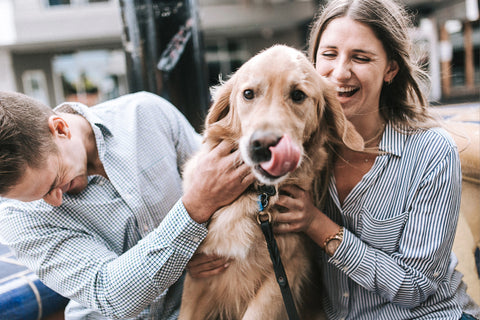
Alternate expressions of love
Of course, licking isn't the only way dogs show their affection. Wagging tails, cuddling up next to you, or bringing you their favourite toy are all additional ways your dog demonstrates their love for you.
In conclusion... It's totally natural!
Understanding why dogs lick can enhance the bond between you and your furry friend. Whether it's an evolutionary instinct, a sign of affection, or even a self-soothing mechanism, it's clear that licking behaviour serves multiple purposes in a dog's life.
So the next time your dog comes up and gives you a lick, remember that it's more than just a sloppy kiss. It's a complex combination of sensory exploration, curiosity, bonding, and affection — a wonderful display of the intricate and loving relationship between you and your furry mate.
If you're looking for natural and healthy ways to reciprocate your dog's affection, consider treating them to some of our premium, natural dog treats. They're the perfect way to say, 'I love you too' in a language your dog will surely understand.
Shop our range online via our website or at any Coles, Woolworths or major pet supply store.
Shop the Recipe
WAG Team
Up Next
Scratch that Itch: The WAG Guide To Dog Skin Conditions




